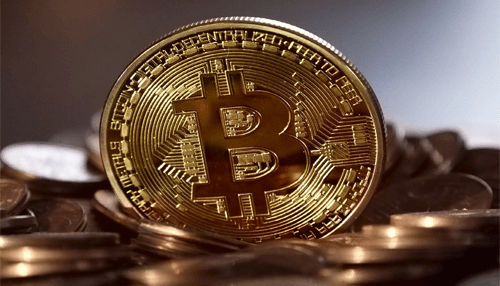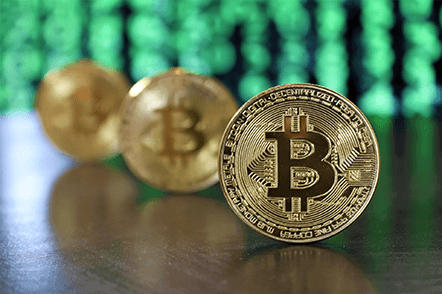Cryptocurrency is not going anywhere, despite a few countries like China banning its use. The largest economies, including the USA, are easing up on the incorporation of digital currencies into online markets. Even some big companies started accepting Bitcoin payments during the first years of its inception. Many businesses encourage the use of BTC because it has lower transaction fees compared to credit cards and bank transfers. The greatest advantage of using BTC is that it leaves no traces of personal or financial data behind that hackers may infringe. And now that the popularity of this crypto coin is soaring, new users particularly want to know the safest ways to use Bitcoin.
How to Keep Bitcoins Safe
With the e-commerce industry growing at an amazing rate, businesses are leveraging their massive online presence. Now more than ever, entrepreneurs are selling digital commodities safely using Bitcoin. So, what are the best ways to buy, keep, and exchange Bitcoin?
Securing the Private Key
A Bitcoin user accesses their BTC through a private key, an integral aspect of a cryptocurrency. It is a complex cryptography configuration that guarantees protection against unauthorized access or theft of funds. Some people use hardware wallets or USB drives to store their private keys. It is a safe option as long as it is not infected by a computer virus. The best storage for a private key is on a non-digital device (one that is not connected to the internet).
This could be a written notepad or a physical wallet. Using a safe deposit box or a fireproof safe is also a great way to secure the private key. Since these offline mechanisms are not proof, it is advisable to add an extra layer of protection by encrypting the cold wallet device.
If a user opts to write down the private key, they should change a few characters so that no one will be able to use the code on the paper. There is also an option to store the bitcoins in digital or hot wallets, especially if there’s a need to trade the crypto on different platforms. Most online exchanges store a large percentage of the funds in a cold storage system and a small portion in hot storage (online). The biggest threat is losing the private key to a cybercriminal or a computer malfunction like when a hard drive crashes. Every Bitcoin user must therefore safeguard the private key so they don’t lose their funds.
Sharing Is Thoughtless
When a Bitcoin user creates a hot wallet, they are given a seed, recovery, or backup phrase. This is a series of words that are generated automatically. The phrase should be stored privately and never shared with anyone, much less online. It is good to write it down and put it away from the computer. The seed phrase comes in when a user wants to recover their BTC funds on-chain; hence, they are a big target for fraudsters. The slogan ‘ sharing is not caring’ means it is thoughtless to share the recovery phrase. If an ill-intentioned person gets their hands on it, they can easily clean out the wallet of the careless holder.
Cryptocurrency frauds are real, and the unfortunate fact is that blockchain technology is not a bank. No centralized authority exists to save users who have shared their private keys and recovery phrases. There are no helplines or fraud departments to report scams. So, it is not easy to trace transactions and block suspicious requests. This is where personal responsibility for data is put to the ultimate test.
Bitcoin Mixer Service
A bitcoin mixer, blender, or tumbler is designed to give the ultimate anonymity of any transaction. Special mixing algorithms are used to eliminate compromising traces of previous transactions with the coins. By hiding the origin of the BTC, the user transacts with peace of mind, knowing that their information remains anonymous and private. Crypto criminals are always on the lookout for loaded wallets on BTC exchanges so they can extract key information to steal money from the wallets.
Cryptocurrency is devised in such a way that every transaction is entered in the Blockchain, the unaltered registry, so that the community may validate any transfer of coins. The Bitcoin Mixer brings together BTC from various sources and masks the crypto deals so that any prying eyes cannot figure out who owns them in specific wallets.
Recognizing Scams
It is common knowledge to know how to spot a phishing scam. In a typical phishing link, the fraudster poses as a known individual, organization, or service via email and text-based messages. Others will call the victim so they can appear credible before requesting critical information. They can even open a sham website where they trick victims into revealing their private keys or sending funds to their Bitcoin addresses. Phishing links seem legit at first because they lead to sites resembling a real service provider. They often encourage the user to download something which is actually a scam. The goal is to compromise the digital wallet and steal Bitcoins.
So, Bitcoin users must be vigilant on the sender’s details to ensure that it is from a legit web address. Other advanced forms of deception come from people impersonating serious investors. Gullible Bitcoin holders have seen their wallets going down the drain after exposing their private keys. People need to understand that there is no such thing as quick money.
Other Security Measures
Securing Bitcoin doesn’t need to be so technical if people understand basic security precautions. The following are some universal tips to keep BTC safe.
- Keeping software up to date: Non-updated BTC software is a perfect target for scammers because it doesn’t have the best security systems.
- Wallet backup: Backing up a digital wallet in CD, hard drive, or USB helps in case of network failure or computer crash.
- Multi-signature: When several people approve a transaction.
- Password security: Passwords must not be shared and a password manager may be useful
- Keeping email addresses safe: Must not be shared on social sites or public places
- Bitcoin addresses must not be reused
- The use of two-factor authentication everywhere
Conclusion:
Bitcoin is an attractive form of currency that can serve everyone’s needs when used safely. It doesn’t require much to safeguard the digital coins. Protection is a matter of implementing the best practices and adhering to them in the long haul. Bitcoin exists beyond the conventional banking system, and the user has ultimate control over their funds. For this matter, sharing critical information is very imprudent.



